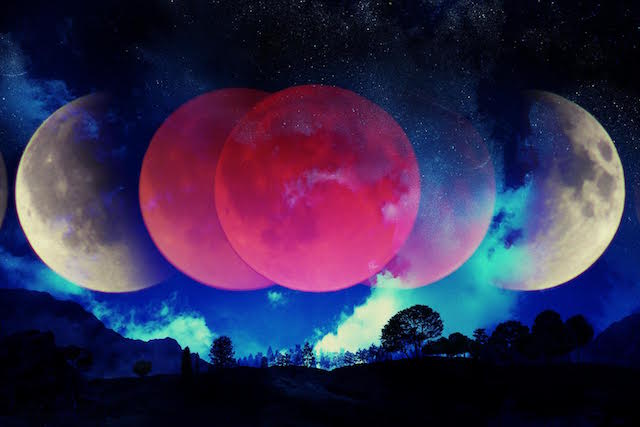Tue 26 Apr 2016
Madness from the Moon
Posted by PJ under folklore, madness, moon, myth, science, skepticism
No Comments

Odd beliefs cling to the face of the moon—and why not? It hangs above us in splendid glory and from the first blink of consciousness, primates must have gazed on it in wonder and fright and superstition. It’s inside of us, too, its cycles shaping the ebb and flow of our internal tides. The moon is a very powerful object, pulling and deforming the shape of the earth as it rotates around us. Why shouldn’t it also pull and deform the creatures that crawl upon the earth?
Science remains skeptical. Oh, not about the pull of the moon on earth’s tides and geography, but on the claims of its influence on human beings. ER doctors, police, mental health professionals may all come up with strong anecdotal evidence of altered behavior during full moons, but scientists—who require replicable studies to believe things and are no fun at all—find it hard to take such things seriously. Even when they do produce a study that suggests some aspects of moon lore may have a basis in fact, they are quick to point out that a single study must be viewed with a certain amount of cynicism. Sometimes even by those who produced the study.
Take for example the belief that a full moon leads to restless sleep. A study from 2013 suggests there may be some basis to this. Christian Cajochen and his colleagues at the Psychiatric Hospital of the University of Basel decided to do sleep studies on 33 volunteers and found that around the time of the full moon, the kind of brain activity associated with deep sleep decreased by 30 percent, participants took slightly longer to fall asleep than they did at other times, and slept on average twenty minutes less overall. What I find most significant is that their levels of melatonin also diminished during this period. Melatonin is the hormone that regulates sleeping and waking cycles.
However, when interviewed by National Public Radio, Cajochen was quick to downplay his own study, saying the findings might not hold up in a larger investigation. Other scientists remain adamantly and steadfastly skeptical, demanding more research before they take anything to do with moon madness seriously. Like I said, no fun at all.
A 2014 study at the Max Planck institute found no significant connection between the lunar cycle and sleep.
Research published in March of 2016 of 5,800 children between ages 9 and 11 in 12 different countries found that they slept about five minutes less on nights with a full moon.
So. The search for truth continues. So do the myths. I suspect science will never be able to completely convince those on the front lines of moon madness triage that there is no correlation. As for me, I will continue to “purify†and “charge” my crystals by the light of the full moon. You just can’t be too careful about such things.
This is an interesting overview of scientific studies on moon madness.
No Responses to “ Madness from the Moon ”